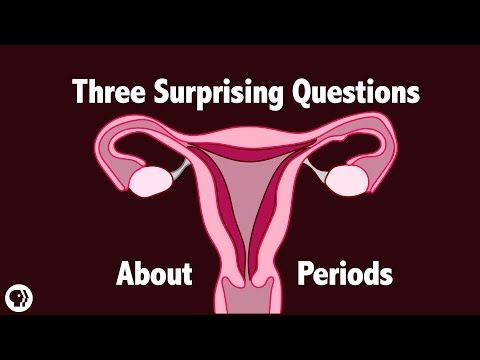3 Surprising Facts About Periods That No One Talks About

Most women feel pretty familiar with their monthly menstrual cycles by the time they’re in their teens and twenties. But scientific research as a whole hasn’t delved into studying menstruation on a higher level — possibly because of the stigma that periods are “gross” and shouldn’t be talked about. In fact, learning more about menstruation would not only offer clues about the health of about half of the population (women), but it would provide insights into reproduction, pregnancy, birth, and the resilience of the body — things that matter to all of humanity.
In a new video out of PBS Digital Studios, narrator Anna Rothchild answers three questions about periods that are normally never discussed because of the “squeamishness” of the topic. Periods are actually an incredibly complex process, and they can tell women a wide array of things about their health.
First, Rothchild asks what period blood consists of (it’s not just pure blood); noting that it contains cells that are shed from the uterus lining, immune cells, vaginal secretions, mixed with blood. In addition to that, menstrual blood can contain up to hundreds of unique proteins that aren’t found anywhere else in the body — showing that more knowledge about menstruation's details could offer clues into overall health.
Rothchild next discusses something that is rarely mentioned, even among females: how periods affect other bodily functions, like bowel movements. During menstruation, chemicals known as prostaglandins trigger the uterus to contract to help push out the uterus lining. However, occasionally a number of prostaglandins make their way to the bowels and make them do the same thing, increasing the amount of BMs during your period. In addition to that, another chemical called progesterone — which contributes to constipation — actually decreases during menstruation, getting things to move more quickly.
Finally, Rothchild poses the third question, and perhaps the most interesting one: What other animals, if any, also have periods? “There aren’t many others,” she notes in the video. “As far as we know, menstruation only happens in some primates, some bats, and weirdly, elephant shrews.”
Watch the video to learn more about how periods can teach us so many things about our bodies — including the uterus’ ability to constantly renew itself without damage, and how period blood can be a window into a woman’s health.



























